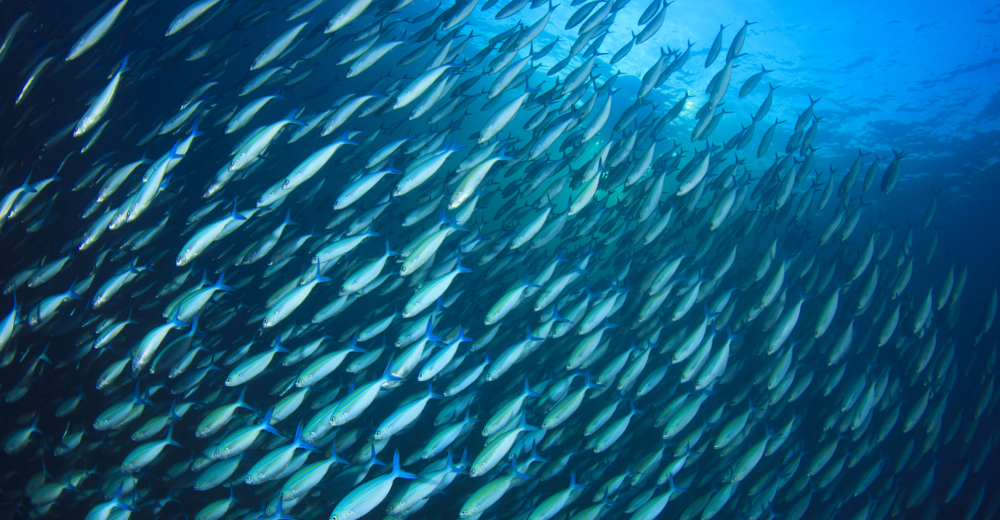Planet
Taking better care of the Earth
Sustainability ultimately means working within the planet's boundaries. But we wanted to go beyond this, which is why we have committed to being a net negative business by 2048. We're rolling out specific reduction and improvement plans on all sites, using low carbon technology for heat recovery and efficiency. And we're developing and implementing decarbonisation plans for our supply chains with our suppliers, retail partners and key industry stakeholders.
We've established three focus areas in our Sustainable Protein Plan 2025 that focus on the planet.
When we developed the Plan, we agreed a series of challenging targets, many of them industry leading. It is a reflection of our culture that so many have already been met."


Going further than addressing our footprint by achieving Net Negative emissions across our sites and value chains
With 30% of global emissions coming from the food system, we're on a necessary journey to net negative emissions.
The first stage is to build the measurement infrastructure to understand and monitor our emissions in more detail. We're setting up an internal lifecycle assessment capability, and with Foods Connected we're building tools to establish a reporting dialogue with our supply chain partners.
This allows us to target our resources where they will have the greatest impact. We are actively working with industry associations, suppliers and government to accelerate emission reductions and limit the impacts of climate change.
Our targets by 2025 are:
- Achieve our Science Based Targets across scope 1, 2 & 3 and publish updated ambitions.
- An intensity reduction of 15% in emissions of cattle in Europe by 2025, aligned to the ERBS Sustainability objectives.
- 100% renewable electricity across all our own operations in Europe by end of 2025 and globally by 2027.
Here is an overview of our progress so far:
- Achieved A- rating from CDP for Climate Change
- 14% reduction in Scope 1, 2 and 3 emissions meaning we are on track to meet our SBT target
- Our Science-Based Targets have been validated by the Science-Based Targets initiative, bringing our commitment in line with a 1.5°C pathway. To find out more information please click https://sciencebasedtargets.org/
- Partnered with the Universities of Lincoln and Oxford on projects exploring: reducing emissions from manure and digestion and how sustainability metrics can influence policy decisions

Driving standards and innovation in the care of animals that enhances their lives and reduces antibiotic use
Animal welfare is as important to us as as it is to our retail partners and their consumers, so we adopt new ways of improving animal health and welfare in our supply chains.
We've published a new animal welfare policy which details our approach and standards, and includes using antibiotics as little as possible without compromising animal welfare, effectively stunning all animals and farmed fish prior to slaughter, avoiding close confinement and limiting travel time, and avoiding growth promoting substances or hormones.
Our targets by 2025 are:
- To ensure responsible antibiotic use throughout our supply chain.
- 100% humane slaughter of animals across all our products including aquaculture.
- To achieve more than 90% of livestock from farms in assurance schemes and engage in their development.
So far we can report the following progress:
- Hilton Foods is part of the Food Industry Initiative on Antimicrobials (FIIA) which has the stated vision of 'Retailers, manufacturers, processors and food service companies coming together to promote and support responsible antibiotic use and action on antimicrobial resistance'. The intention of this initiative is to support and engage with existing industry groups working in this area, ensuring work is aligned and duplication of effort avoided. FIIA has published three policies covering: Responsible Use of Antibiotics, Measurement of Antibiotic Data, and a Code of Conduct on Access to and Use of Industry Data. Hilton Foods supports and subscribes to these policies as part of its approach to antibiotic stewardship. The policies and further information about FIIA can be found at: FIIA
- Member of Stakeholder Advisory Board for the Animal Welfare Research Network allowing us to input into the wider research agenda
- Hilton Seafood Foods UK were awarded the Compassion in World Farming Good Farm Animal Welfare Award for Innovation in Animal Welfare in 2021 for implementing an electrical stunner in Warm Water Prawns. In 2022, 80% of the prawns were stunned using this method.

Collaborating to improve our stewardship of land and sea; promoting biodiversity, addressing deforestation, and protecting water and soils
We understand that halting nature loss isn't enough – we need to reverse it by taking action now to reduce and remove the drivers that lead to the degradation of ecosystems across our global supply chains.
Our 2025 targets are:
- Enable farmers to reduce their emissions and improve biodiversity, to promote more regenerative farming, by providing planning and reporting tools
- 100% of seafood responsibly sourced to Hilton Foods standards (aligned to the Sustainable Seafood Coalition code and PAS 1550), actively engaging in fishery improvement projects (FIPs) and aquaculture standards development, and openly reporting our supply chains and their status in the Ocean Disclosure Project
- Hilton Seafood UK directly sourced wild caught seafood will be 100% certified to the MSC standard or equivalent by 2025
- We have signed up to the UK Courtauld Commitment 2030 Water Ambition to improve the quality and availability of water at catchment scale
- Eliminate deforestation from the conversion of natural forests to agriculture or livestock production in our supply chains
- Promoting novel proteins and oils in aquaculture feed to enable sustainable growth
- Maintain 100% of paper and board from certified sources
Here are some other initiatives we're already involved in:
- We are signatories of the UK Soy Manifesto
- We are founder members of the Soy Transparency Coalition and sponsored the first trader benchmarking report in 2021
- Building on the success of the 2020 deforestation cut-off date set by the soy protein concentrate traders in Brazil for use in salmon
- Focusing on beef, we have aligned a UK cattle industry soy plan in UK Cattle Sustainability Platform
- 98% of our UK direct supply of wild caught fish is certified to the MSC Standard
- We fund and actively participate in Project UK Fishery Improvement Projects (FIPs) to bring the remainder into certification
So far we can report the following progress:
- Published our UK commitment to sourcing Deforestation and Conversion free soy
- 100% of paper and board from certified sources
- Over 98% of Hilton Seafood UK directly sourced wild caught seafood certified to MSC standards or in a comprehensive Fishery Improvement Project
- Founded the UK Seafood Carbon Collaboration with Seafood Grimsby Humber Alliance, working together on emissions measurement and decarbonisation in the seafood industry
- Hilton Foods has partnered with technology start-up Chirrup.ai through the Tesco-WWF Sustainability Innovation Fund to support farmers in measuring biodiversity on their farms
